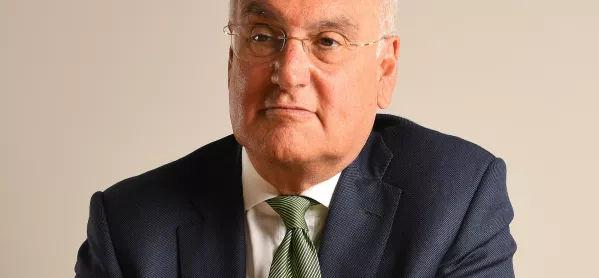A former Ofsted chief inspector has cast doubt on the ability of some schools to reliably calculate GCSE and A-level grades this summer.
Sir Michael Wilshaw said schools rated less than “good” by Ofsted would have “very unreliable internal assessment systems” so it would be “difficult”.
He suggested the grades they submitted to exam boards would need to be “properly checked and moderated”.
News: ‘Astonishing’: Ministers condemned over school openings
GCSEs: Relax GCSE grade boundaries this year, say teachers
GCSEs: Open-book exams and reduced content for 2021?
But exams regulator Ofqual has made it clear it will not be checking schools’ individual teacher-assessed GCSE and A-level grades.
The calculated grades are needed because of the cancellation of this summer’s GCSE and A-level exams. Schools are being asked to submit a rank order of pupils for each subject and grade to exam boards, as well as the grade they think pupils would have achieved had they been able to sit the exams.
This morning Sir Michael was asked for his thoughts on the process of teachers grading their own pupils for the qualifications.
“Not every school is a ‘good’ school, not every school is an ‘outstanding’ school,” he replied on the BBC Today programme.
“A school that is weak, judged by Ofsted to be in special measures or requiring improvement, particularly in the secondary sector where there are more of those schools in those categories - they will have very unreliable internal assessment systems.
“So it’s going to be a very difficult one, and the Department for Education working with Ofqual, need to make sure that the results given to the examination bodies by the schools are properly checked and moderated.”
He added that for pupils in Years 10 and 12 sitting GCSEs and A levels next year, the need for schools to implement recovery programmes was “absolutely critical”.
“Youngsters in Year 10 and Year 12 and in Year 5 in primary schools will have missed out on a whole term’s education - yes I know online programmes have been taking place, but they are variable in quality - we know that. And we have got to make sure that really effective recovery programmes are put into place,” he said.
Sir Michael also said the government’s plan of bringing back all primary pupils before the end of the summer term “smacks of poor organisation”, and he reiterated calls for pupils to be given the option of repeating the year.
An Ofqual spokesperson said: “We believe the approach of calculated grades is the fairest possible given these unprecedented circumstances.
“Schools and colleges are best placed to judge the likely performance of their students, had learning and assessments gone ahead as planned, and there is evidence to show that teachers can rank order students with a high degree of accuracy.
“We have provided clear guidance on the process to help staff in different schools and colleges take a common approach to assessing their students. Heads of Centre have also been asked to sign a declaration to confirm that the grades submitted honestly and fairly represent what the students would have been most likely to achieve.
“To make sure that grades are fair between schools and colleges, exam boards will put all centre assessment grades through a process of standardisation using a model developed with Ofqual.”
The Department for Education said it was working to provide laptops, tablets and 4G wireless routers to pupils in the shortest possible time frame, and that leading state schools had collaborated to open the online Oak National Academy, backed by government funding.





